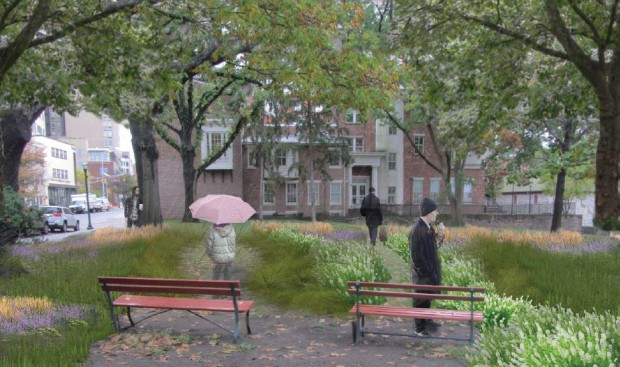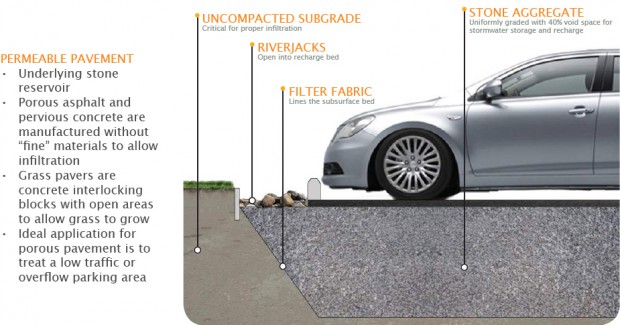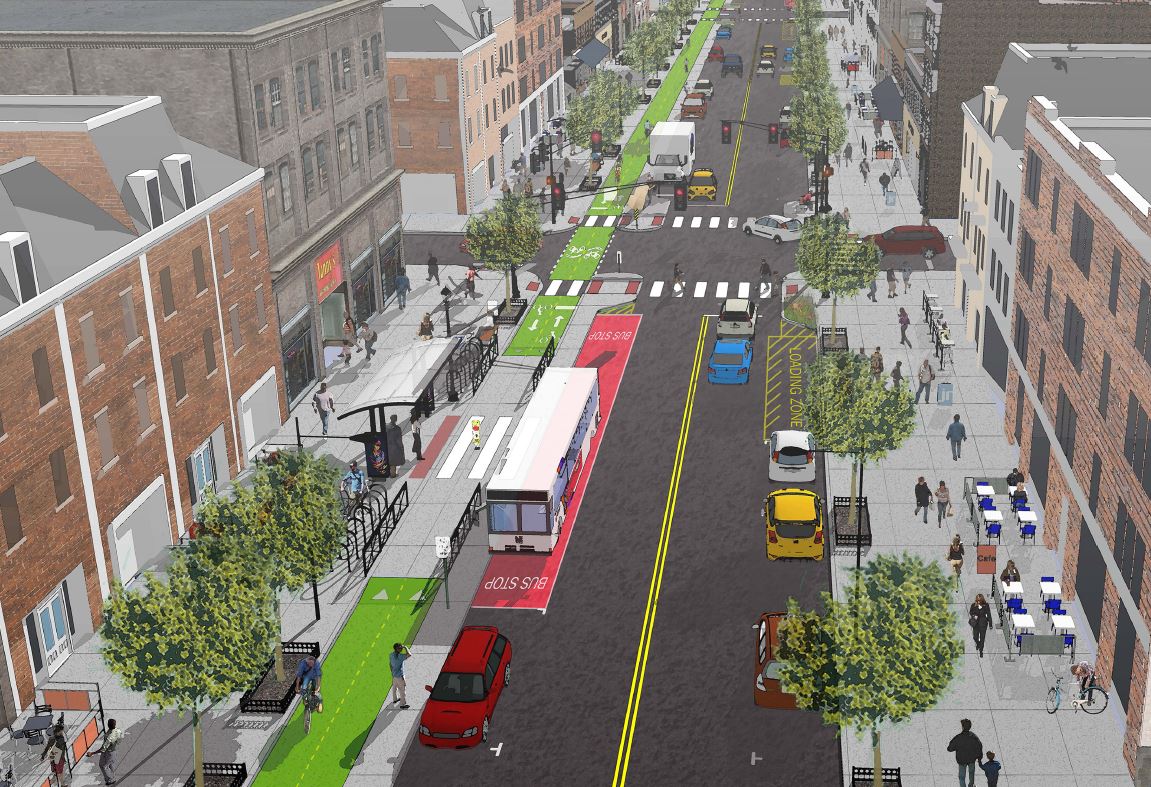New Jersey Future Blog
Study Highlights Opportunities for Green Infrastructure in Trenton
January 6th, 2015 by Jane Rosenblatt
As part of its ongoing work to transform the Assunpink Creek in downtown Trenton into a new urban amenity, area stakeholders identified an opportunity to examine the feasibility of implementing various green-infrastructure strategies in the surrounding neighborhood. Implementing such strategies would help reduce the quantity of stormwater that flows into the newly daylighted creek; help clean the water that does flow into it; help control flooding in the surrounding neighborhood; and help enhance the park area around the creek as a restorative place for both residents and nature.
To assess the feasibility of various green-infrastructure strategies, Rutgers New Jersey Cooperative Extension Water Resources Program studied the neighborhood immediately surrounding the creek. The resulting report describes the benefits and suitability of key green-infrastructure elements, including:
- Bioswales and rain gardens, which catch rainwater and filter it rather than allowing it to run off;
- Curb cuts, which redirect stormwater to areas that can absorb it rather than allowing it to enter a storm drain;
- Pervious pavement, which directs rainwater underground rather than to storm drains;
- Rainwater harvesting systems, such as rain barrels and cisterns, which capture rainwater before it hits the ground and stores it, either for use or later release.
The study also highlighted various locations within the study area that would be suitable for one or more of these strategies, including:
- Thomas Edison State College, where rain gardens could be incorporated into existing outdoor areas to manage stormwater more effectively;
- Mercer Street Friends, where harvesting systems could be installed to collect rainwater off the building’s roof so that it can will be available for various outdoor uses;
- The Department of Agriculture parking lot, where rain gardens, curb cuts and pervious pavement could be used to keep stormwater runoff away from nearby drains and waterways.
The survey also reviewed community-engagement strategies such as workshops where residents can make their own rain barrels, and school programs to educate students about the importance of effective stormwater management.
The study has been shared with Trenton city officials and with the city’s green team. New Jersey Future and other stakeholders are actively seeking options that would allow the recommendations in the study to be implemented.





















